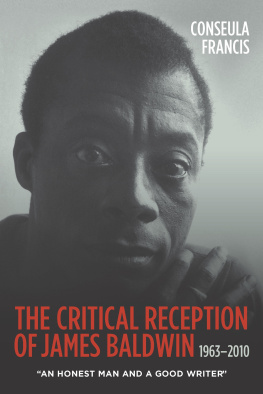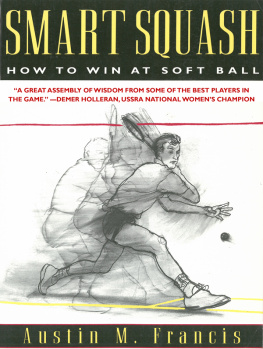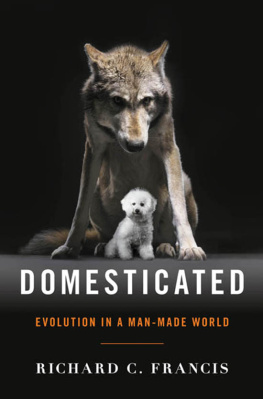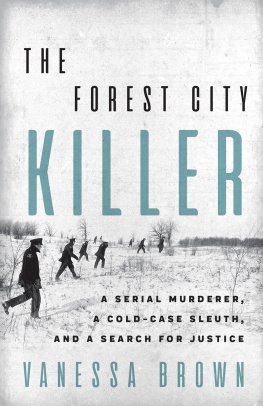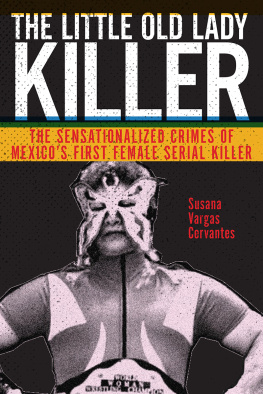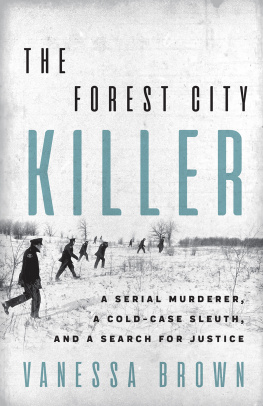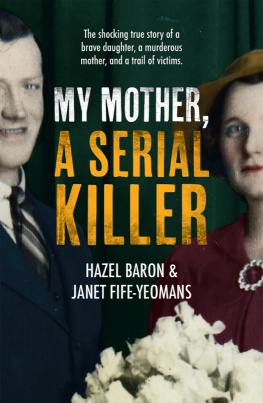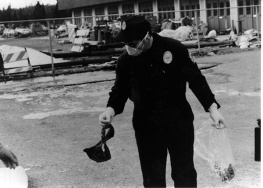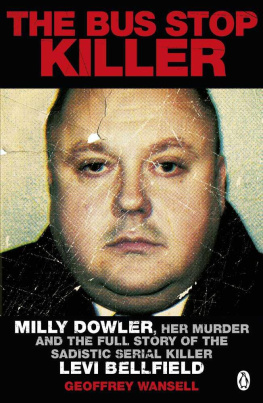1566 S. Pennsylvania St.
Denver, CO 80210
All rights reserved. No part of this book may be reproduced in any form or by any means without the prior written consent of the Publisher, excepting brief quotes used in reviews.
WILDBLUE PRESS is registered at the U.S. Patent and Trademark Offices.
For the victims we know of, and those we do not.
INTRODUCTION
During the fall of 2014, while researching unsolved crimes, I came across a story in the Anchorage Daily News that piqued my interest. The article, dated September 28, 2000, had the headline: THERES NOTHING WERE NOT DOING POLICE GIVE PRIORITY TO SOLVING SIX SLAYINGS . The story recounted the killings of five Native Alaskan women and an African American woman who had been murdered within the span of sixteen months. There was no clear indication the slayings were linked, but fear was spreading among the residents of Anchorage that a serial killer was on the loose. The cases shared a number of similarities: most of the women were intoxicated at the time of their deaths and all of them were last seen alone and outside during early morning hours. However, the women had met their ends in different ways: three had been stabbed, one strangled, one drowned, and the sixth had her throat slit and her skull crushed by a rock.
Quoted in the article was a Native Alaskan activist named Desa Jacobsson, who had gone on a twenty-eight-day hunger strike to pressure federal authorities to investigate the cases, claiming that police were not taking the deaths seriously enough. Jacobsson, sixty-seven, intrigued me because she spoke to a larger systemic problem, namely, the victimization of Native Alaskan women and societys failure to protect them.
If this was Chelsea Clinton this was happening to, theyd be on it like white on rice, Jacobsson proclaimed to me over the phone, matter-of-factly. My call had taken her so off guard, she later told me, she initially couldnt speak.
Are you still there? I had asked, after several seconds of silence.
After a long pause, she said, I didnt know it was going to affect me like this. Whoa.
Fourteen years had passed since the murders, and she said that my call, which came out of the blue, had caused all of her memories from that time to come rushing back.
I thought everyone had forgotten, she told me. Here I thought I was just going to retire, eat bonbons, and become a cougar, she told me during one of our many meetings that followed, making a joke about dating younger men, and letting out a hearty laugh. She then lowered her gaze, and a look of earnestness returned to her face. But when you called, I realized, we have unfinished business.
In the months following the murders, Jacobsson had not only blamed the Anchorage police for failing to aggressively investigate the cases but also faulted the tribal leadership in Alaska for its apathy, saying as far as the six dead women were concerned, The silence was deafening.
During our first conversation, Jacobsson was quick to point to crime statistics that showed Native women were far more likely to be sexually assaulted than white women in Alaska.
We lead the nation in violence against women and children and sexual violence. And predators know the police here dont respond, she said.
According to figures compiled by the Justice Center at the University of Alaska Anchorage, just 18 percent of the rapes reported to the Anchorage police are prosecuted, a figure that is almost 20 percent below the national average. It is a statistic that is all the more troubling given that Alaska has the highest number of rapes per capita of any U.S. state, and Native Alaskan women are more at risk than any other group. The Justice Department estimated in 2012 that one in three Native Alaskan women have been raped, and the reality is undoubtedly much more unsettling. At least one hundred of the 226 Native villages in Alaska dont have any kind of law enforcementmany of those same villages dont have road access or dependable phone servicemaking the reporting of such crimes impractical if not, impossible. The Alaska Federation of Natives has estimated the rate of sexual assault in many Alaskan villages to be twelve times the national average.
As for the larger cities such as Anchorage and Fairbanks, Jacobsson contended, a complacency on the part of public officials with regard to Native women leads to victim-blaming rather than pursuing the perpetrators. Its why, she conjectured, rapists and murderers have long been attracted to Alaska.
I dont know what you know about predators, but these are the most practiced manipulators on earth. They know what theyre doing, how theyre doing it their radar is always on.
It was not the first time Anchorage had been gripped by fear a serial killer was lurking among its inhabitants. Robert Hansen, known as the Butcher Baker, had kidnapped women and hunted them down in the Alaskan wilderness during a twelve-year period in the 1970s and 1980s. Prior to his death in 2014, he confessed to seventeen murders and to raping at least thirty women. Chillingly, he lived among the residents of Anchorage, with his wife and two children, who, along with everyone else, were oblivious to his crimes.
That summer of 2000, however, no one knew who might perpetrate such butchery, and fifteen years later the mystery remained largely unexplained. At the writing of this account, three of the six murders remain unsolved and the other three cases are considered closed, each committed by a separate assailant.
When I reached the head of the Anchorage Police Departments Homicide Unit, Sergeant Slawomir Markiewicz said he could not share the files for the unsolved cases with me since they were still technically open. When I asked him if he believed if any of the unsolved cases from 1999-2000 were related, he engaged in a kind of meaningless doublespeak.
I think I can safely say, there was no evidence to show that they were related, he told me. And I think I can say vice versa that there was no evidence to show they were not related.
Suspicion often has swirled around a drug dealer named Joshua Wade, but there is little else to go on. Wade is serving a life sentence in connection with an unrelated murder and has confessed to others. As for the still-unsolved cases of the dead women, DNA evidence has not implicated Wade, and state prosecutors show little interest in pursuing new charges against a mass murderer already in custody, with no hope of release.
In my personal evaluation, how many life sentences are you going to give a guy? Assistant Attorney General John Novak said, as we sat in his office in downtown Anchorage. Novak told me he feels filing any new charges would be a misuse of state resources since Wade already would spend the rest of his life in a cage.
I think Joshua Wade is one of the inherently evil people that needs to be locked up for the rest of his life, Novak said. And if did he kill others? Maybe. But it doesnt really matter to me.


